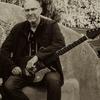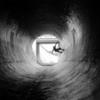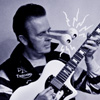h3dg3h0g

Joined: Jun 27, 2015
Posts: 236
San Francisco East Bay Area



|

Posted on Jun 08 2017 06:08 PM
What up, SG101ers!!!
A lot of youse guys and gals have recorded and released albums. My band is getting really close to being ready and we're tentatively planning to record something this Fall.
I would like to humbly solicit your ideas and guidance around the question - "Should we record in a studio or should we record 'at home'"?
Now, obviously, there is no right answer to this question and it all depends. I am just trying to bait you all.  We have a few bucks to spend on studio time (people LOVE our tip jar!) and I am interested in producing a high quality product. However, I am also interested in a minimum of stress, time off work, cost overruns and disappointment. I read somewhere that The Bambi Molesters tracked their last album in three hours. I suspect it will take me three hours to track a single one of my leads to my satisfaction. We have a few bucks to spend on studio time (people LOVE our tip jar!) and I am interested in producing a high quality product. However, I am also interested in a minimum of stress, time off work, cost overruns and disappointment. I read somewhere that The Bambi Molesters tracked their last album in three hours. I suspect it will take me three hours to track a single one of my leads to my satisfaction.
On one hand, a studio provides an experienced engineer who knows what s/he is doing along with "pro" recording equipment. Expensive, stressful (I would imagine.) In the end you have a flawless reproduction of whatever your fingers produced that day.
On the other hand, I have my MacBook, Logic Pro X, four mics, a digital interface and some other random equipment and an interest and willingness to learn about "home recording." I produced our current crop of demos although all the guitars went straight into the DAW - no mic'ing of amps. I did mic the drums and that was fun.
We don't need pristine - but we also don't want "garage band." What we want ... is ... well ... sigh ... what I want is for North Sea Surf Radio to play a couple of our tunes one day! I want to sound good and not be ashamed.
I would love to hear stories from folks about their first time recording in the studio - stress levels, successes, failures - as well as from folks who tracked and/or mixed and/or mastered on their own and came out with a high quality product. I don't need to hear from folks who wound up with crappy home recordings! 
Thanks much!
And as your reward for reading this post - here's our tip jar ready to roll to the gig.

— Jonathan the Reverbivore
The Reverbivores
Please check out our latest album The Reverbivores Watch TV!
www.thereverbivores.com
Facebook
YouTube
|
Redfeather

Joined: Jul 30, 2016
Posts: 896

|

Posted on Jun 08 2017 06:53 PM
While I don't have my own experience creating an album either way, I have thought about the same thing. While you're waiting for someone with experience to answer, you might listen to the Wavechargers from France, who use a very minimalist approach to recording, and also Satan's Pilgrims' recent album, Siniestro, which they recorded themselves in a Masonic lodge, I believe. Both bands sound great to my ear. I feel there's something very surf-authentic about low-count mic live recordings.
|
montereyjack66

Joined: Jul 23, 2014
Posts: 646
LA -ish






|

Posted on Jun 08 2017 07:36 PM
IF you have a studio that you have a lot of confidence in, AND you have rehearsed your band to death and with a jaundiced eye - in short - you will get a performance that everybody is happy with in two to three takes per song, then a studio would probably be the way to go, given your time table.
Home recording has a lot of cost advantages but there is a lot of learning involved to get to the X level. This can be taxing and distracting and may very well subtract from your playing until you get experienced and comfortable. In the long run, it has LOTS of advantages, but... not so much in the short run.
Performance wise, if you can your band sounding no apologies awesome into and out of an I phone voice memo recording,then you can probably get the most out of a pre-existing studio. Caveat: if you're an out of control OCD perfectionist, then go with the home set up.
Good luck!
mj
— mj
bent playing for benter results
Do not attempt to adjust your TV set.
https://www.facebook.com/Bass-VI-Explorers-Club-179437279151035/
https://www.facebook.com/Lost-Planet-Shamen-366987463657230/

Last edited: Jun 08, 2017 22:56:27
|
DannySnyder

Joined: Mar 02, 2006
Posts: 11079
Berkeley, CA











|

Posted on Jun 08 2017 08:01 PM
Talk to Ferenc, he is quite reasonable for recording. If you like the Tomorrowmen or Frankie and the poolboys, that's where we did it.
— Danny Snyder
"With great reverb comes great responsibility" - Uncle Leo
I am now playing trumpet with Prince Buster tribute band 'Balzac'
Playing keys and guitar with Combo Tezeta
Formerly a guitarist in The TomorrowMen and Meshugga Beach Party
Latest surf project - Now That's What I Call SURF
|
DannySnyder

Joined: Mar 02, 2006
Posts: 11079
Berkeley, CA











|

Posted on Jun 08 2017 08:02 PM
Mind you recording is only half the battle, good sounding records put a lot of effort into the mixing.
— Danny Snyder
"With great reverb comes great responsibility" - Uncle Leo
I am now playing trumpet with Prince Buster tribute band 'Balzac'
Playing keys and guitar with Combo Tezeta
Formerly a guitarist in The TomorrowMen and Meshugga Beach Party
Latest surf project - Now That's What I Call SURF
|
The_Cholla

Joined: Jan 21, 2015
Posts: 191
Newport Beach, CA





|

Posted on Jun 08 2017 08:21 PM
I like your post because this is exactly the same question we had a year or so ago when we decided to record our first EP. I was willing to learn how to record and mix (I had a little bit of experience with that, but not much) so we went for the home studio solution with the same gear that you describe, a DAW and an interface with enough inputs to record drums with 4 mics. I think the result we got isn't bad, at least good enough to have NSSR playing our songs (we had the same criterion  ). A link to the EP is in my signature. ). A link to the EP is in my signature.
All this is very exciting and it's great to be able to control all aspects of your project, without being pressed by the rush of a studio session. The downside is that it can be hard to find a space to record drums/guitars without getting your neighbors mad. It is also very time-consuming so be ready to sacrifice some of your free time for a while, depending on how many songs you plan to record (and of your pickiness).
Except if you go with a live recording setup as mentioned above, I recommend that you record DI tracks of all your guitars/bass tracks so you can reamp them later if you're not satisfied by the sound you got during tracking. That really relieves a lot of stress since you only worry about getting solid takes when tracking, knowing that you still have the possibility of changing the sound later. That's really a great option to have for home recording, and you can also use the DI track with an amp simulator in your DAW if you don't want to mic amps.
— Yannick
Lead Guitar in Blackball Bandits : https://blackballbandits.bandcamp.com/
Solo project : https://thechollasurf.bandcamp.com/releases
|
h3dg3h0g

Joined: Jun 27, 2015
Posts: 236
San Francisco East Bay Area



|

Posted on Jun 08 2017 09:02 PM
Ooooo! Thank you guys for your comments!
Danny, I have heard of The Tomorrowmen and Frankie and the Pool Boys and I understand they are not bad!  I will definitely reach out to Ferenc! I will definitely reach out to Ferenc!
Keep those stories and comments comin'!
Thanks!!!
— Jonathan the Reverbivore
The Reverbivores
Please check out our latest album The Reverbivores Watch TV!
www.thereverbivores.com
Facebook
YouTube
|
da-ron

Joined: Jan 02, 2009
Posts: 1308
The original Plymouth, UK.






|

Posted on May 10 2018 09:12 AM
Hope I can contribute something to the thread. We recorded our first CD in a studio, it was the second CD I'd recorded in a studio. We're lucky to have a recording engineer that will tell us when things aren't right and offer suggestions to improve things. A lot of recording engineers do not do this. The end product sounded good.
I've mixed our second CD at home with a similar set up to yours: MacBook, DAW and interface. First attempts sounded OK at the time, but on reflection they sounded truly awful. Then I did an online course on Logic Pro on Udemy and started getting some acceptable results. My plan is for me to mix them and pay to get them mastered.
Studio time is expensive and if you are not well rehearsed it can get expensive very quick. It's not really the place to 'finish' your tunes, you need to be well rehearsed and clear in your goal. I found that the thought of the cost of it distracted from my playing, but this could be put down to inexperience. Home recording is a better place to finish your tunes, but you have to recognise when they are finished.
So, to sum up, you have the equipment to produce professional sounding recordings, but it will take time to learn how. A studio will be the quickest way as long as you are well rehearsed and have a clear idea of what you want to achieve. A good middle way is to go into a studio and get your drums recorded properly and the do the rest at home, then get the final mixes mastered by a professional. Whatever you do, make sure you get them mastered properly, it does make a difference.
My bass player absolutely hates recording and studios, so options are limited!
— http://thewaterboarders.bandcamp.com/
|
amnesiack

Joined: Feb 06, 2014
Posts: 105
Seattle, WA



|

Posted on May 10 2018 02:46 PM
The_Cholla wrote:
I like your post because this is exactly the same question we had a year or so ago when we decided to record our first EP. I was willing to learn how to record and mix (I had a little bit of experience with that, but not much) so we went for the home studio solution with the same gear that you describe, a DAW and an interface with enough inputs to record drums with 4 mics. I think the result we got isn't bad, at least good enough to have NSSR playing our songs (we had the same criterion  ). A link to the EP is in my signature. ). A link to the EP is in my signature.
Hey Yannick,
Is The Lost Mission also a home recording? I see that everything on your Bandcamp is listed as recorded at "Backbay Ranch studio", so I'm guessing the answer is yes? (I ask because I think the record is great, and it says a lot about what can be accomplished with DIY setup).
— Four String Fender for The Delstroyers & The Woodhavens
|
The_Cholla

Joined: Jan 21, 2015
Posts: 191
Newport Beach, CA





|

Posted on May 10 2018 03:46 PM
Yes Backbay Ranch studio is a fancy name for my home studio  Everything was produced in DIY, the same way as for our previous EPs as described above. It's nice to hear you like it, thanks man ! I really like your new album too ;) Everything was produced in DIY, the same way as for our previous EPs as described above. It's nice to hear you like it, thanks man ! I really like your new album too ;)
amnesiack wrote:
Hey Yannick,
Is The Lost Mission also a home recording? I see that everything on your Bandcamp is listed as recorded at "Backbay Ranch studio", so I'm guessing the answer is yes? (I ask because I think the record is great, and it says a lot about what can be accomplished with DIY setup).
— Yannick
Lead Guitar in Blackball Bandits : https://blackballbandits.bandcamp.com/
Solo project : https://thechollasurf.bandcamp.com/releases
|
SamDBL

Joined: Sep 19, 2016
Posts: 246
Tampa


|

Posted on May 10 2018 10:35 PM
I have recorded in some of the biggest studios in the world. A&M and Sound City, to name a couple. I have also recorded a ton of records in my home. I have made records in my home that sound as good, or better, than the big studios and with budgets of over $60,000.
My suggestions for home recording with great results:
-
Don’t skimp too much on microphones. Get standard stuff, at least. Shure 57s, D112, etc.
-
Record everything yourself. Then outsource the mixing and mastering. To do this, you will need to provide the mixer with clean, separated tracks with little or no effects on them and flat eq. The learning curve to achieve this will take a little time. But compared to the learning curve of mixing and mastering which involves a lot of art as well as technical know-how, it’s minimal. Think of learning how to play guitar. How long did it take to get really good? That’s about what you’re looking at with learning how to mix and master a recording to pro standards, IMO. Much more cost and time effective to let someone else handle that.
And of course finding a mixer that you trust and knows how to mix stuff he/she didn’t record takes awhile as well. I’ve had tracks that I had mixed by one person that turned out like a boxy demo. Those same tracks were handed to someone else that was a better fit, and they ended up sounding like something you’d hear on the radio.
Anyway, this is how I do all of my recording, now. Partly because label budgets have dried up. And partly because I no longer wanted to have to wait for a label to show interest for every little project I feel like doing. It’s extremely liberating to be a mostly self contained artist. I can direct you to some of the material I’ve done in this way. Consumer level recording gear available today is pretty amazing. But it’s useless without years of training on if you want to have something really professional sounding. This is the best method I’ve found of circumventing this problem.
— Guitarist for Black Valley Moon & Down By Law
|
Boss_Daddy_Meltdown

Joined: Apr 25, 2018
Posts: 84
Gainesville, GA




|

Posted on May 11 2018 08:13 AM
da-ron wrote:
A good middle way is to go into a studio and get your drums recorded properly and the do the rest at home, then get the final mixes mastered by a professional. Whatever you do, make sure you get them mastered properly, it does make a difference.
I 100% agree with this. Get the drums recorded in a studio and just use the GTR/Bass tracks you record there as a guide. Then record your final GTR/Bass tracks at home at your leisure. NO pressure and you can over-dub to your hearts content!!
That is how our band is moving forward as we speak.
Side-note: we record our practices. (2 over-heads for the drums and the GTR amps are mic'ed.) Yeah, there is a ton of bleed-through but for demoing, it works great and we can critique from there....hope this helps too.
— Can I have everything louder than everything else!
https://thesurfaces1.bandcamp.com/releases
|
h3dg3h0g

Joined: Jun 27, 2015
Posts: 236
San Francisco East Bay Area



|

Posted on May 11 2018 08:30 PM
Hi everyone!
Thanks again for all your feedback! We went into the studio this past weekend and finished tracking. We are halfway through mixing our EP. It was quite an experience! We booked four days in the studio and finished tracking 7 tunes more or less in two and a half days. We mixed 4 tunes in the remaining 1.5 days and it seems we need about a day more to finish the job. Then to the mastering engineer.
I look forward to posting some photos soon and then announcing the availability of The Reverbivores’ first EP!
— Jonathan the Reverbivore
The Reverbivores
Please check out our latest album The Reverbivores Watch TV!
www.thereverbivores.com
Facebook
YouTube
|
stratdancer

Joined: Dec 11, 2013
Posts: 2537
Akron, Ohio



|

Posted on Feb 26 2019 02:39 PM
I am opting for tracking in the home studio and copying each song then taking the work station to a recording studio for mixing and mastering. I will mix one version of each song as a guide and see if the mix can be improved by the engineer and we will work together. Initial tracking and mixing sounds good on the demos. We just don't have the time to build all the sonic choices in a studio. Experiments are free other than time in.
— The Kahuna Kings
https://www.facebook.com/pages/The-Kahuna-Kings/459752090818447
https://thekahunakings.bandcamp.com/releases
|
synchro

Joined: Feb 02, 2008
Posts: 4571
Not One-Sawn, but Two-Sawn . . . AZ.





|

Posted on Feb 26 2019 10:50 PM
stratdancer wrote:
I am opting for tracking in the home studio and copying each song then taking the work station to a recording studio for mixing and mastering. I will mix one version of each song as a guide and see if the mix can be improved by the engineer and we will work together. Initial tracking and mixing sounds good on the demos. We just don't have the time to build all the sonic choices in a studio. Experiments are free other than time in.
You may be onto something with this idea. It preserves the opportunity for numerous takes without excessive costs but leaves the most technical aspects to someone that specializes in mixing and mastering.
One thing I’m very interested in for any future recordings done at Synchro studios, is re-amping. Basically, this allows you to split your signal and record clean, direct to the DAW, while hearing your sound through an amp as you play. With the clean tracks laid down, each track can then be replayed through an amp and any effects desired and that can be captured by mic’ing the amp, while preserving the pristine signal, in case you want to try something different. It allows a band to play their parts together, in real time, yet each track remains discrete with no bleed between tracks.
— The artist formerly known as: Synchro
When Surf Guitar is outlawed only outlaws will play Surf Guitar.
|
stratdancer

Joined: Dec 11, 2013
Posts: 2537
Akron, Ohio



|

Posted on Feb 27 2019 06:03 AM
synchro wrote:
stratdancer wrote:
I am opting for tracking in the home studio and copying each song then taking the work station to a recording studio for mixing and mastering. I will mix one version of each song as a guide and see if the mix can be improved by the engineer and we will work together. Initial tracking and mixing sounds good on the demos. We just don't have the time to build all the sonic choices in a studio. Experiments are free other than time in.
You may be onto something with this idea. It preserves the opportunity for numerous takes without excessive costs but leaves the most technical aspects to someone that specializes in mixing and mastering.
One thing I’m very interested in for any future recordings done at Synchro studios, is re-amping. Basically, this allows you to split your signal and record clean, direct to the DAW, while hearing your sound through an amp as you play. With the clean tracks laid down, each track can then be replayed through an amp and any effects desired and that can be captured by mic’ing the amp, while preserving the pristine signal, in case you want to try something different. It allows a band to play their parts together, in real time, yet each track remains discrete with no bleed between tracks.
Not a bad idea if you are using a lot of processing and it can possibly save a bit of time letting you do all your experimentation without having to re-track. I don't think my workstation would have the ability to do that. I've always stuck with getting the signal right in the first place. One thing that helps is that now that I have a good wireless , I can track my guitars while in the control room. I will have to jump back and forth a little getting the levels set on the amp and mic position but then I'll put the pedalboard in the control room with a wireless transmitter and I can set delay levels and such quite easily. Great for when you are tracking by yourself.
— The Kahuna Kings
https://www.facebook.com/pages/The-Kahuna-Kings/459752090818447
https://thekahunakings.bandcamp.com/releases
|
synchro

Joined: Feb 02, 2008
Posts: 4571
Not One-Sawn, but Two-Sawn . . . AZ.





|

Posted on Feb 27 2019 07:30 AM
stratdancer wrote:
synchro wrote:
stratdancer wrote:
I am opting for tracking in the home studio and copying each song then taking the work station to a recording studio for mixing and mastering. I will mix one version of each song as a guide and see if the mix can be improved by the engineer and we will work together. Initial tracking and mixing sounds good on the demos. We just don't have the time to build all the sonic choices in a studio. Experiments are free other than time in.
You may be onto something with this idea. It preserves the opportunity for numerous takes without excessive costs but leaves the most technical aspects to someone that specializes in mixing and mastering.
One thing I’m very interested in for any future recordings done at Synchro studios, is re-amping. Basically, this allows you to split your signal and record clean, direct to the DAW, while hearing your sound through an amp as you play. With the clean tracks laid down, each track can then be replayed through an amp and any effects desired and that can be captured by mic’ing the amp, while preserving the pristine signal, in case you want to try something different. It allows a band to play their parts together, in real time, yet each track remains discrete with no bleed between tracks.
Not a bad idea if you are using a lot of processing and it can possibly save a bit of time letting you do all your experimentation without having to re-track. I don't think my workstation would have the ability to do that. I've always stuck with getting the signal right in the first place. One thing that helps is that now that I have a good wireless , I can track my guitars while in the control room. I will have to jump back and forth a little getting the levels set on the amp and mic position but then I'll put the pedalboard in the control room with a wireless transmitter and I can set delay levels and such quite easily. Great for when you are tracking by yourself.
It requires a piece of hardware, such as a Little Labs Redeye 3D Phantom Direct Box & Re-amplifier. This strikes me as solving all sorts of problems, but most importantly, you can keep the original track pristine, which affords the greatest flexibility.
— The artist formerly known as: Synchro
When Surf Guitar is outlawed only outlaws will play Surf Guitar.
|
Vince_Ray

Joined: Aug 26, 2015
Posts: 252
|

Posted on Feb 27 2019 12:45 PM
I've come away from studios unsatisfied too many times and we always thought our small stereo zoom recorder sounded better some how. Not as polished and glossy of course, but more realistic if our sound.So I went ahead with buying a few mics and a Zoom R16 and couldn't be happier. I enjoy the learning process and most of all, I like working from the one take live recording. Bleed is COOL, close mic-ing...I try and avoid. Obviously this doesn't work for everyone but it suits me fine
|
Surfing_Sam_61

Joined: Jan 15, 2019
Posts: 1515
|

Posted on Feb 27 2019 03:42 PM
The technology is definitely there to produce a high quality recording at a home studio - most productions today are half studio - half demo anyway - I have heard some really good home grown music out there.
The only problem is multi-tracking it just takes a little experience fooling round with to get it right. Most individual tracks will sound very good by it self - but mixing tracks not properly equalized will be a problem - it's usually phase cancellation - if you have effects out of phase can be a real downer for sound on mix down- just beware of that and pick up the skills to adjust everything or fool around till it sounds better. I think everyone would need a 31 band equalizer plug in on every channel of the mixer to get studio sound myself - or at least try it on one channel - usually the drums die or will not be as clear - and bass out of phase is a problem sometimes if it has effects on it etc.
It really comes down to your budget in the end - there are so many albums made every year more than likely it won't make a dime anyway so just make a home studio recording. It use to be bands could not afford the recording gear back in the day (It cost as much as a house then) so they went to studios. Today can buy essentially the same thing for a under thousand dollars. Many bands in the 1980's spent like 100 grand or more to make a CD. now you can almost do the same thing on a computer - amazing really when you think of it - but on the flip side - its also easy for everybody else to do the same exact thing - so there is more competition out there now.
Last edited: Feb 27, 2019 15:58:17
|
Vince_Ray

Joined: Aug 26, 2015
Posts: 252
|

Posted on Feb 27 2019 04:10 PM
You're right. I was just talking with a pal who's a professional mastering engineer and he was saying how impressed he'd been with Audacity. To be honest, I think a lot of this gear does TOO much, there's so much great stuff available for free. But having the right 'ear' and learned skills is a different matter. Fun times
|
 We have a few bucks to spend on studio time (people LOVE our tip jar!) and I am interested in producing a high quality product. However, I am also interested in a minimum of stress, time off work, cost overruns and disappointment. I read somewhere that The Bambi Molesters tracked their last album in three hours. I suspect it will take me three hours to track a single one of my leads to my satisfaction.
We have a few bucks to spend on studio time (people LOVE our tip jar!) and I am interested in producing a high quality product. However, I am also interested in a minimum of stress, time off work, cost overruns and disappointment. I read somewhere that The Bambi Molesters tracked their last album in three hours. I suspect it will take me three hours to track a single one of my leads to my satisfaction. ![]()































